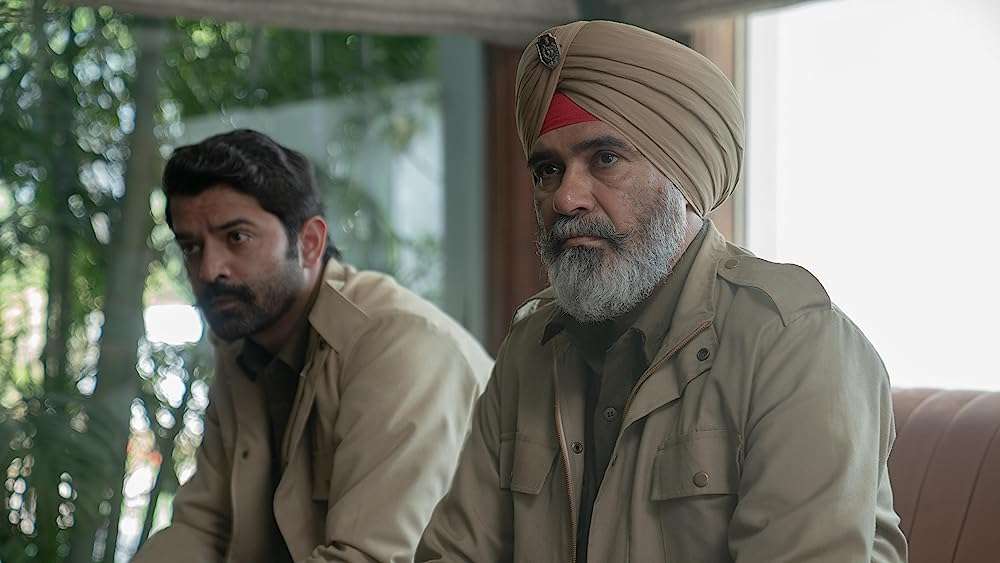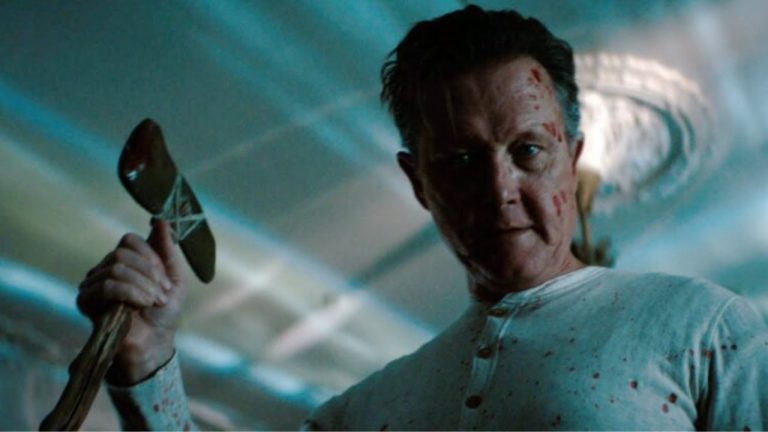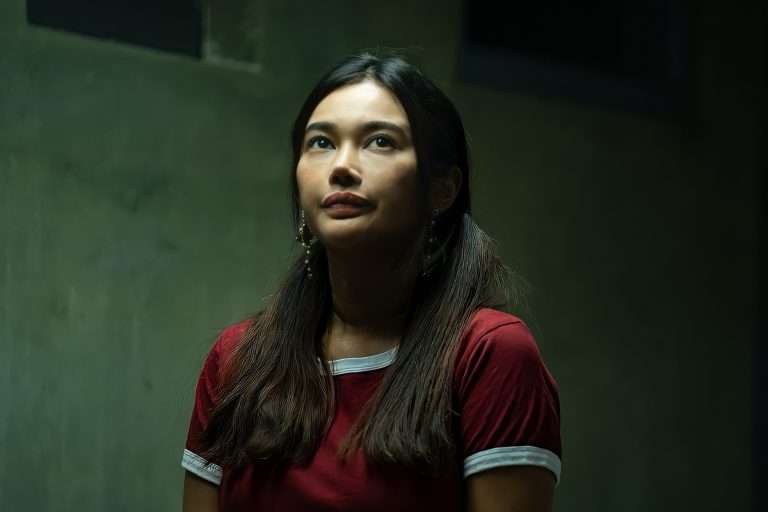Kohrra (Season 1) ‘Netflix’ Review: Rarely does the name of a production house associated with creating long-form storytelling invite anticipation or, at the very least, curiosity. But when you find out that a web series has been produced by Clean Slate Filmz (NH10, Paatal Lok), with the co-creator of ‘Paatal Lok’, Sudip Sharma, attached, and directed by Randeep Jha (Halahal, Trial by Fire), chances of raised eyebrows increases exponentially.
If expectations were that this would be a ‘Paatal Lok’ encore, the viewers would be disappointed. From an aesthetic and even tonal standpoint, Kohrra is different. It opens with a murder in the fields, the fog lifting over the grassy foliage to reveal the murder, and SI Balbir Singh (Suvinder Vicky) and his partner Garundi (Barun Sobti) are on the case, investigating the murder of this British citizen of Indian descent who had come to this small town of Jagrana with his parents and best friend to get married. A further complication is that his best friend, Liam Murphy (Ivantiy Novak), is also missing, while the murdered victim, Paul, is found to have had his throat slit. His head has also been bashed by a rock, which invites speculation about multiple perpetrators.
As with stories like these, if we take ‘Kohraa’ or fog as the literal marker of obfuscation hiding multiple layers of deceit and lies stacked upon lies, it is very much interested in the aftermath of this murder and how it threatens to reveal simmering secrets within each member of this investigation involved, from the investigators to the perpetrators to the suspected. Violence is the most common form of proactive measure taken by men who have grown up under decades of patriarchy and been raised under the grip of society and expectations. You compound this with the added attributes of profession and wealth, and violence becomes almost uncomfortable in its liberal usage.
SI Balbir Singh, as a character, becomes more and more complicated and borderline unlikeable as we see his worldview and his treatment of his daughter slowly and steadily encroach upon his investigation and his work life. Balbir and his daughter, Nimarat, are trapped in a cycle of violence and rejection, with his perspective of a woman’s life running antithetical to Nimrat’s desire for freedom and desire. Fathers failing to understand their children’s perspective of life and children’s proclivity to not directly confront their fear of reprisal is a common thread that is controlling every one of the younger characters in this twisted yet oddly meditative journey filled with bursts of violence.
Yet somehow, amidst all of the universal themes being explored here—the generation gap, the class gap, and the inherent wealth divide—the story is also extremely region-specific, with its dialect or its aesthetic. Sharma and writers Gunjit Chopra and Diggi Sisodia bring to life a Punjab very different from all the previous iterations being presented in all forms of media: a Punjab home to immense wealth, intense violence, hardened drug abuse, a concurrent streak of black humor, and yet with an unabashed melancholy and poignancy throughout. Amidst all of the dirge of these negative traits, which are far more attractive propositions of storytelling, ‘Kohrra’ is also a love story at its core, with one story becoming the inciting incident and the two others becoming markers of bare minimum happiness. And even as happiness arrives, it is mostly met with indifference. Perhaps that is the true reflection of a society so inundated with toxic masculinity and how women are trying to escape its shackles by any means necessary.

The show’s use of a discordant and messy violin score underlying the chaos within the foggy, peaceful, sleepy town of Jagrana is very telling. It reflects a world where criminals run clumsily, cops lose their way, shootouts occur with sloppy yet hilarious brutality, and police investigations are interested in attaining results that do not upset the apple cart or the status quo of the rich and powerful. But its grittiness sometimes becomes uncomfortable, as ‘Kohrra’ follows the tradition of shows like ‘Paatal Lok’, where the violence towards women and even queer characters sometimes borders on unnecessary.
Taking the interrogation of Veera and the violence being depicted, it could be argued that shocking the audience is, in essence, the purpose of the scene, it also runs the risk of luxuriating in the violence. ‘Kohrra’ does walk the tightrope in showcasing corporal violence and ‘copaganda’, and yet almost immediately shows the failure of these methods within subsequent scenes or in the immediate next episode. It provides a unique texture to the story while condemning the overreliance on violence. But expecting an angle towards a female-centric story or a queer story without resorting to violence is not the writers’ forte. More importantly, the show is not interested in that perspective.
Barun Sobti’s Garundi is an unique character in how he utilizes his comic-relief chops through careless cruelty and flippant usage of slurs and violence. But amidst all of that, his character is also funny and searching for love in a family where he is already tied into a messy conundrum. That conundrum is explained, but it does not leave much of an impact. The advantage of ‘Kohraa’ overall is the hiring of actors who are far better at times than the material for their characters. For Garundi, it is elevating a mostly sketchy character by Sobti, but for Balbir Singh, it is Surinder Vicky’s haunted visage and vulnerability that make Singh such a compelling character to follow even as he spirals further downward. ‘Kohrra’ stumbles in its denouement, however, where the revelation of the case is left until the very end, which is one of the few times that the show resorts to using cliches in investigative storytelling so blatantly.
Amidst the deluge of long-form storytelling that completely escapes the nuances of this format, ‘Kohrra’ reveals itself to be a breath of fresh, dank, foggy air. Its exploration of characters and crafting of compelling protagonists to follow brings the show into the winning column in a year already filled with strong Indian web series. It does not have the same blistering energy as ‘Paatal Lok’, but it makes up for it with a contemplative air, highlighting the messiness of humanity as it threatens to unspool and unravel at any moment. Murder is just the flashiest of inciting incidents; it is the smaller shockwaves of familial strife and deceit that impact the hardest.






![Lookback at Bresson: Pickpocket [1959]](https://79468c92.delivery.rocketcdn.me/wp-content/uploads/2019/06/Pickpocket-Michel-and-Jeane-in-Cafe-768x557.jpg)

